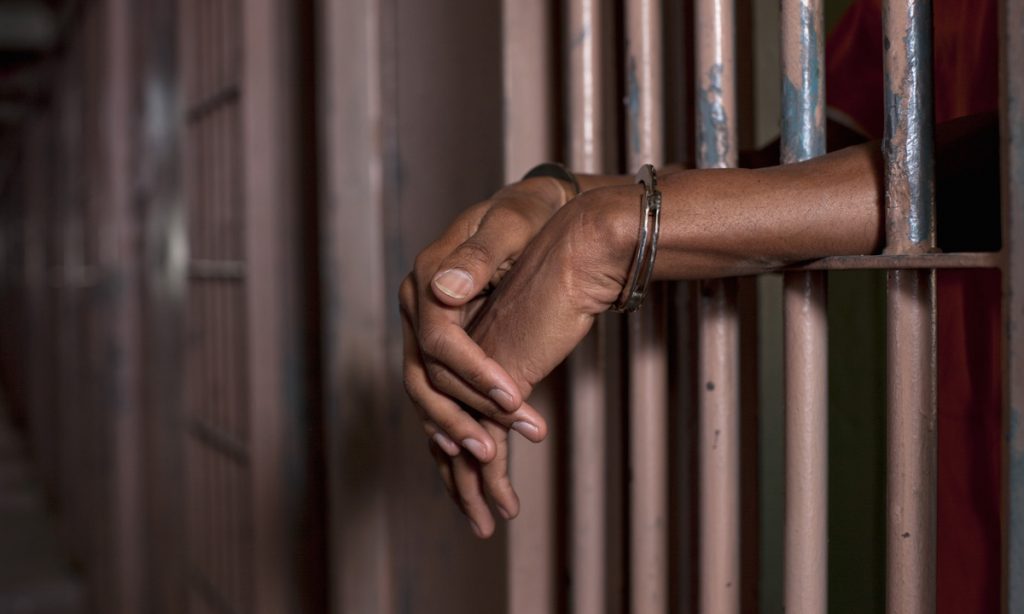“The entire industry has to remain united and focused on making cannabis justice part of our platform, right alongside other fundamentals like legalization and access.”
By Andrew Ward
The United States continues to have the largest prison population globally. Some 2.1 million Americans were incarcerated as of November 2018.
On the federal level, marijuana sentencing has dropped sharply in recent years. Just 92 individuals were sentenced for possession in 2017.
Yet according to Federal Bureau of Investigation data, officers on the state level made roughly 663,000 marijuana-based arrests in 2018, totaling 40% of those arrested for drugs that year.
Possession accounted for 92% of those arrested in 2018.
Efforts are underway to expunge the cannabis records of imprisoned individuals in select states, and proponents of marijuana reform are hoping the MORE Act is passed.
“We still have a very long way to go to remedy the damage done, but we are headed in the right direction and making more progress with each election cycle and legislative session,” says Dr. Chanda Macias, CEO of Ilera Holistic Healthcare and CEO of Women Grow.
“Our industry and advocates must continue to apply pressure to right the wrongs.”
Supporting Returning Citizens
Macias, who also heads up The National Holistic Healing Center, says post-incarceration social services have always been lacking.
“Freed cannabis prisoners have to fight for a slice of a pie in seeking ownership or jobs,” she says.
While the industry and certain states are advancing support for those affected by the drug war, more could be done to reduce recidivism and encourage industry participation.
RELATED: How Marijuana Reform Intersects With Policing And Racial Justice
“It is very encouraging to see so many states reforming and releasing prisoners,” says Liesl Bernard, CEO of the staffing firm CannabizTeam. “There is a long road ahead to reach adequate support for justice impacted individuals reentering the workplace.”
LaTorie Marshall, the founder of National Expungement Week, says that we all could be doing more to help returning citizens.
“We need to stay in communication to make sure that our people know they’re supported,” Marshall says.
“This helps to reduce the high recidivism rate that runs rampant through disenfranchised communities that have been systematically targeted for years.”

N.E.W. provides services to returning citizens that address the thousands of legal and socioeconomic barriers they face, including voting, work and employment rights.
For Bernard and CannabizTeam’s Aim Higher training and re-entry program, the efforts include working with clients to create entry-level and internship roles for additional workplace opportunities.
The N.E.W.’s Marshall commends these efforts, but remains concerned.
RELATED: Prosecutorial Misconduct: The Invisible Problem Behind The Police
“This increase in awareness has yet to fully translate into opportunities for returning citizens, as most of the efforts being made are not specific enough and are too easily co-opted by those outside of these impacted communities,” Marshall says.
Marshall commended Michigan for the recent passage of Clean Slate Michigan, which makes hundreds of thousands of citizens eligible for a clean record.
Returning Citizens ‘Have The Skill Set’
For those whose records have been expunged, finding work can be challenging.
In recent years, states have taken steps to improve pathways to employment with varying degrees of success.
Macias says that retail and cultivation work provides entry-level pathways for returning citizens.
Many states impose restrictions that limit felons from entering the market.
The system is broken and in need of repair for those with records as well as those having their records expunged, she says.
“There are people who want to have careers or ownership in this industry, but they are being discounted,” Macias says. “What’s even more insane is they have the skill set.”
RELATED: Twista, Berner, And Chris Webby Discuss Racial Bias In Cannabis Arrests
That skill set can translate to ownership. CannaSafe CEO Aaron Riley was once arrested on several felony and misdemeanor charges for selling on his South Carolina college campus.
Thanks to pretrial intervention, he was able to have the record expunged. In the years since, he’s gone on to head up one of the largest companies in the cannabis space.

Riley, who is white, says his race and the sentencing disparity allowed him and the other men arrested, who were all Black, to receive pretrial intervention and not a stiffer sentence.
“If I wasn’t arrested, it would have been really different for them,” Riley says.
In addition to finding work in the space, returning citizens could also find opportunities creating an ancillary business or joining a team seeking a license. In many states, applicants receive additional points for partnering with returning individuals.
Additional Efforts To Continue Healing
Those looking to do their part can do so in a variety of ways.
“The entire industry has to remain united and focused on making cannabis justice part of our platform, right alongside other fundamentals like legalization and access,” says Macias. “Mentorship is free.”
N.E.W.’s Marshall says that funding and support for literacy workshops, programs and other educational efforts are also key.
“Let other industries know that they should be doing the same healing work, if you do any, and challenge them to do the same,” she says.
“We should all be asking what are the right steps to making justice, equity and wealth realistic, obtainable and available for communities that have been the most impacted and affected by this systemic injustice that capitalism no longer wants to call ‘a drug.'”


